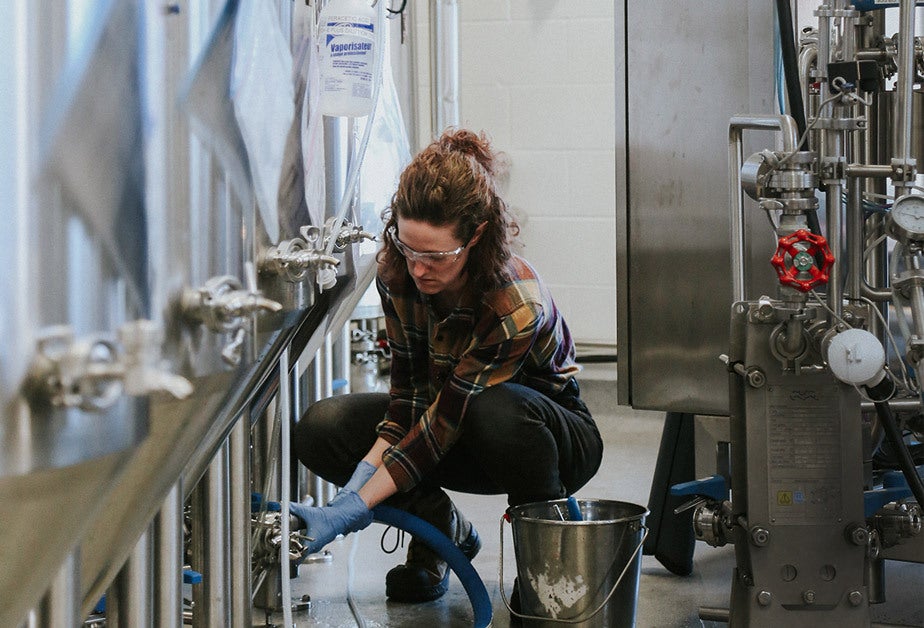The coronavirus (COVID-19) outbreak has closed businesses and relegated the majority of the world’s population to their homes for much of 2020. Only businesses deemed essential continue to operate as normal. Many assembly lines have temporarily stopped production, while other businesses are pivoting to produce essential medical products for the front line medical professionals battling the virus.
Crucial supplies such as ventilators, personal protective equipment (PPE) and hand sanitizer are being spread thin as countries contend with more hospitalizations. To augment capacity, many companies, from large medical device producers to local distilleries, are stepping up to produce products outside of their core competency. Along with this need to adapt and ramp up new supply chains, there is a surging need to gather data from suppliers that aligns to tight timeframes for new product releases.
Ventilators & the Big 3
Automakers
In March, General Motors Company, alongside Ford Motor Company and Fiat Chrysler Automobiles N.V. announced they were suspending North American manufacturing operations due to the crisis. Honda Motor Company, Toyota Motor Corporation and other automakers have also shuttered operations in North America and abroad. With factories around North America stalled, many car manufacturers changed gears to support healthcare professionals. It’s not an easy shift. It will take many weeks for factories to retrofit and adjust production away from vehicles to manufacturing medical devices.
Ford
Ford is taking a two-prong approach to fighting the virus, switching some production facilities to making company-designed face shields to protect workers and partnering with 3M Company and General Electric Company to rush production of respirators.
General Motors
In early April, the U.S. government contracted General Motors to build $490 million USD worth of ventilators. The contract was awarded under the Defense Production Act, which gives the government an array of powers to award contracts, compelling businesses to action. The machines, used when patients are unable to breathe on their own, are to be added to the Strategic National Stockpile by August.
Fiat Chrysler
Fiat Chrysler is also lending facilities and expertise to increase the production of ventilators for use in hospitals across North America. In a press release in late March, the company promised to manufacture and donate 1 million masks to front line workers across Canada, Mexico and the U.S.
Enable your company to be more agile with a platform solution to supply chain data management. Learn more in our guide, Digital Transformation & Transparency: A Guide to Mitigating Supply Chain Risk.
PPE & Clothing Companies
Under Armour Inc.
The retail giant specializing in fitness clothing has switched some of its factories to producing essential equipment for hospital workers, including no-sew face makes, face shields, hospital gowns and specially-equipped fanny packs.
Bauer Hockey
Bauer is best known for outfitting the majority of National Hockey League players with skates, helmets and other essential equipment. The company switched to manufacturing hospital grade face shields, which can limit transmission of the coronavirus by preventing the spread of saliva or discharge from the nose generated when an infected person coughs or sneezes. The company says its goal is to produce 2.25 million face protectors by the end of May.
The Challenge With Face Masks
Face masks are in high demand, but there are key differences between medical-grade and regular face masks. A medical-grade mask is typically made of special material that is melted rather than woven, forming a more complete filter that keeps air particles out. These masks, commonly labeled as N95 masks in North America or FFP2 in Europe, require special machines that were already running at near full capacity before the COVID-19 outbreak. This is one reason the supply was drained so quickly and why efforts to resupply have been challenging.
A regular face mask is woven, forming an incomplete barrier, allowing for more particle permeation and offering less protection. Recently, health organizations around the world have changed their guidance to recommend the use of these face masks, particularly for people showing symptoms. A key difference is medical-grade face masks protect the wearer; whereas, regular cloth face masks protect the public from the wearer.
3M
The multinational manufacturer 3M has doubled its capacity, producing nearly 100 million N95 masks per month. The company has been contracted by several countries to supply PPE for hospitals in Canada and Latin America. In late March, U.S. President Donald Trump invoked the Defense Production Act to compel 3M to prioritize supplying U.S. hospitals, effectively halting planned deliveries to other countries. The company resisted and eventually struck a deal with the government to allow its planned deliveries to proceed. As a compromise, over 50 million masks will be imported by 3M from China to be used by American hospitals.
Clothing Labels
Many apparel companies, from high fashion labels to local boutiques are producing cloth face masks. As noted above, these masks offer limited personal protection, but are beneficial to reducing the spread of the virus and limiting the strain on the N95 supplies.
Hand Sanitizer & the Distilleries
Distilleries
With millions of people now bottled up at home, alcohol sales have surged. In the U.S., sales spiked 243 percent. The increase in demand has not stopped several breweries and distilleries from altering production from spirits to sanitizer. Major companies such as Pernod Ricard, Diageo and Anheuser-Busch have altered a number of their production facilities to enable the change. Local distilleries around the world have also switched to hand sanitizer.
Despite being less effective than soap and water, public demand for hand sanitizer is at an all-time high, resulting in shortages around the world. The U.S. Food and Drug Administration issued a temporary policy allowing for increased production.
How Assent Is Helping
During perhaps the largest supply chain disruption event in history, Assent’s supply chain expertise has been in high demand. Company-wide pivots are seldom seen on this scale and with such speed. Changing manufacturing plans requires a transparent view of supply chains, so businesses can make the most informed decisions and procure the right products and materials. The Assent Compliance Platform provides companies with automated data collection and configurable analysis of supply chain data, enabling faster and safer product deployment, and more accurate risk identification. To learn more, contact us today.










